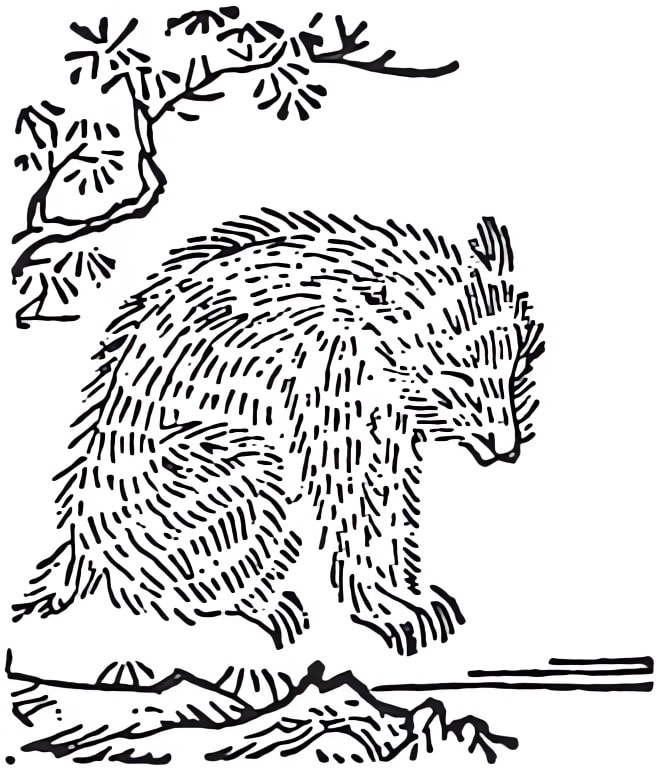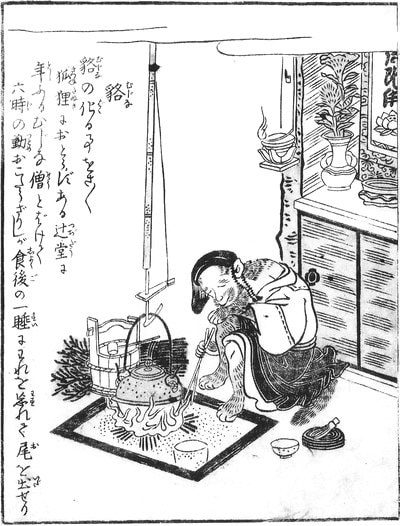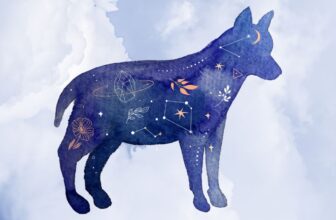
Table of Contents
In Japanese mythology, the Mujina is a shape-shifting yokai (spirit) that mocks and deceives human beings. The word Mujina can refer to the Japanese badger, racoon-dog, civet, or fox. As opposed to other spirit animals, the Mujina’s rare and uncommon. It’s seldom spotted or encountered by human beings. There’s little information about the Mujina, but from what we know, it’s an elusive, yet not a malicious creature.
Let’s take a closer look at the Japanese Mujina.

Behavior and Characteristics of Mujina
The Mujina are believed to be badgers that have developed magical powers and can shape-shift at will. However, the term can also refer to a raccoon-dog. Mujina are not as popular as other shape-shifting yokai, and don’t feature in many myths. They’re said to be shy of human society and prefer living far away in the mountains. Those Mujina who do live among humans, hide their identity and remain unknown.
The Mujina tend to shape-shift into human form when it’s dark and there are no humans around. However, they quickly hide and transform back into animal form if a human comes around. The Mujina, like the badger or the raccoon-dog, also eats small animals and is a carnivorous yokai.
The Kabukiri-kozō is one type of Mujina, that transforms into a little monk and greets humans with the words, Drink water, drink tea. It also takes on the appearance of a little boy or man and likes to sing songs in the dark. The Kabukiri-kozō doesn’t always speak to humans, and depending on its mood, can transform back into a raccoon-dog or badger.
Mujina vs. Noppera-Bo
The Mujina often assumes the form of a faceless ghost known as the Noppera-Bō. While these are two different types of creatures, the Mujina can take on the form of the Noppera-Bō, while the Noppera-Bō often disguises itself as a human.
Noppera-Bō aren’t inherently wicked or evil, but they like tormenting people who are cruel and unkind. They usually live in mountains and forests, and don’t frequent human settlements. In many cases of Noppera-Bō sightings, it often turned out that they were actually Mujina in disguise.

Mujina and the Old Merchant
There are many ghost stories involving the Mujina. One such story is as follows:
A Japanese ghost story narrates the encounter between a Mujina and an old merchant. In this tale, the old merchant was walking along the Kii-no-kuni-zaka slope late in the evening. To his surprise, he saw a young woman sitting near a moat and weeping bitterly. The merchant was very kind and offered her help and consolation. But the woman didn’t acknowledge his presence and hid her face with her dress sleeve.
At last, when the old merchant placed his hand on her shoulder, she lowered her sleeve and stroked her face, which was blank and featureless. The man was utterly shocked by what he saw and ran away as fast as he could. After a few miles, he followed a light and reached a stall of a roadside seller.
The man was out of breath, but he recounted his misadventure to the seller. He tried to explain the featureless and blank face that he had seen. As he was struggling to voice his thoughts, the seller revealed his own blank and egg like face. The seller then asked the man if what he saw was anything like this. As soon as the seller revelated his identity, the light went out, and the man was left alone in the darkness with the Mujina.
Mujina in Popular Culture
- There is a short story published in Lafcadio Hearn’s book Kwaidan: Stories and Studies of Strange Things called Mujina. The story recounts the confrontation between a Mujina and an old man.
- In the popular Japanese anime Naruto, the mythical Mujina is reimagined as a group of bandits.
- Mujina’s also the name for a hot spring resort in Japan.
In Brief
The Mujina’s a minor but important mythical figure in Japanese mythology. It’s transformative abilities and magical powers have made it one of the most popular motifs in old wives’ tales and Japanese folklore. Just like the western Bogeyman or the Middle Eastern djinn, the Mujina also exists to frighten and to awe.








